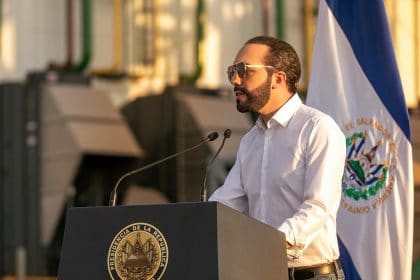JPMorgan pinpoints Bitcoin (BTC) illiquidity, volatility, and social skepticism as “limitations on its potential as a medium of exchange” in El Salvador.
JPMorgan Chase & Co (NYSE: JPM), has said headwinds are due for El Salvador recently pronounced Bitcoin Law. Authored by Steve Palacio, Joshua Younger, and Veronica Mejia Bustamante, the bank’s report was released on Thursday.
Details state that Bitcoin has $40-$50 billion daily trading volumes but that most of these are internalized by major exchanges. Additionally, most of Bitcoin’s supply is confined in illiquid entities, of which 90%+ remains untraded in over a year. The report also read that there is a “significant and rising fraction held by wallets with light turnover.”
More of the report states that “daily payment activity in El Salvador would represent 4% of the recent on-chain transaction volume and more than 1% of the total value of tokens which have been transferred between wallets in the past year.” Illiquidity and nature of the volume is also “potentially a significant limitation on its potential as a medium of exchange.”
The Palacio-led report also cited the Bitcoin Law poll results recently carried out in El Salvador. According to the survey, there is widespread cynicism and hesitance to use BTC as a mode of exchange. 54% of Salvadorians perceive the new law as “not at all correct” and a further 46% know “nothing” about Bitcoin.
Moreover, the report stated high volatility as a big challenge in a bimonetary system alongside official dollarization. Besides, a constant imbalance in the demand for BTC/USD conversions on the government’s platform could “cannibalize onshore dollar liquidity.” Eventually, this will propagate risk in fiscal stability and balance of payments.
JPMorgan: El Salvador Bitcoin Law Potential Challenges
On June 8, El Salvador’s legislature voted in the Bitcoin Law. The country expects to formally implement changes on Sept. 7. 39-year-old President Nayib Bukele, initiated the bill saying it would counter the country’s low banking penetration rate. Furthermore, Bitcoin will cut the costs of sending remittances, according to Bukele.
Thereafter, a heated debate rose with critiques questioning the benefits and ramifications of such a move. Among those with mounting concerns is the International Monetary Fund (IMF). At present, El Salvador is holding discussions with IMF on its credit program.
On top of that, the regional deputy to an opposition party has sued the government over the Bitcoin Law. Backed by a number of citizens in the suit, the deputy has pronounced the law as “unconstitutional”.
Most Bitcoin proponents concur that the asset is a good store of value, but they are very skeptical about its position as a payment mechanism. “Bitcoin is the worst payment system ever invented. It’s terrible,” William Quigley, Tether’s co-founder stated. “Almost any token is better than Bitcoin as a payment system,” the pioneer of multiple crypto aspects added.
next